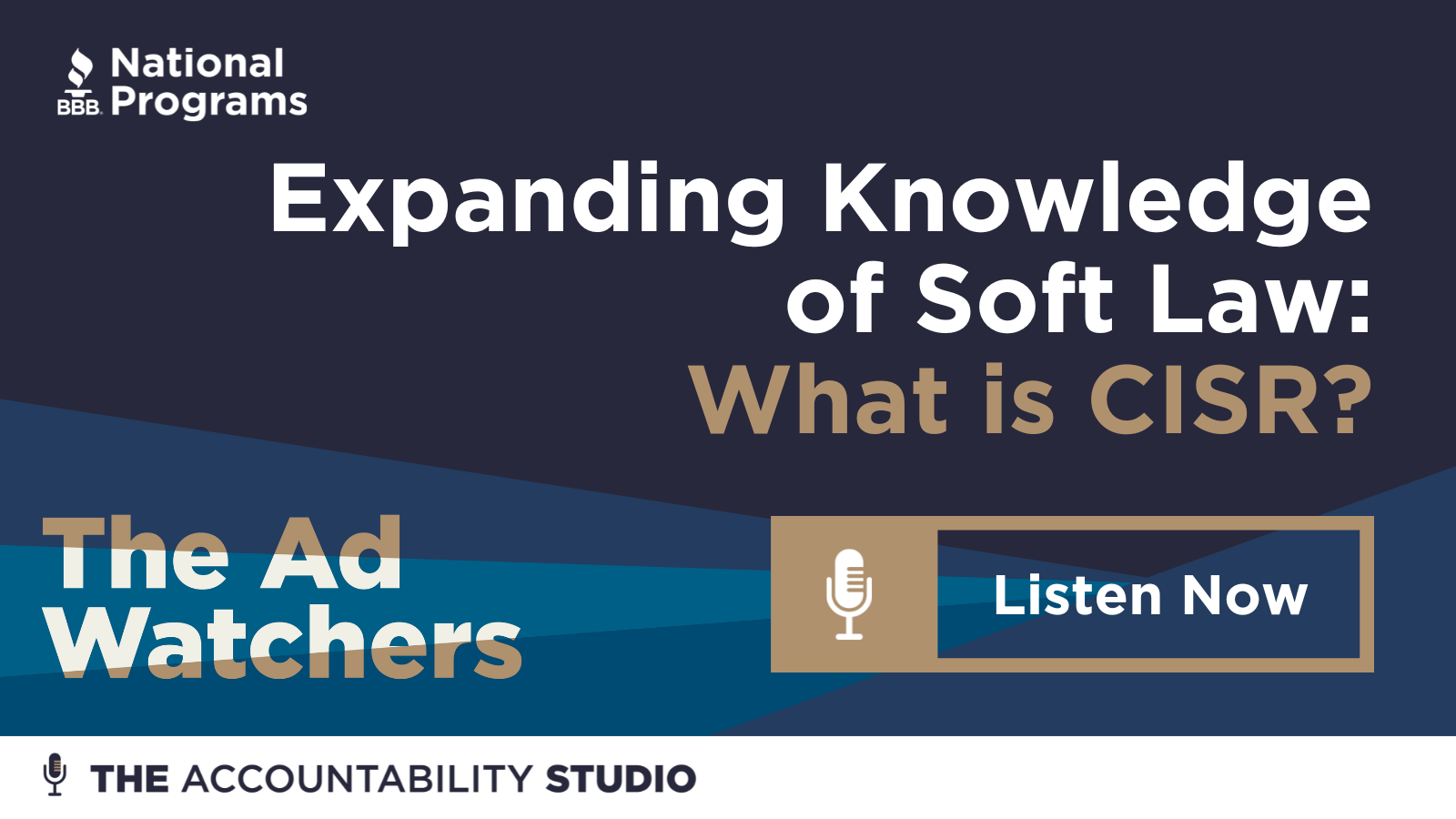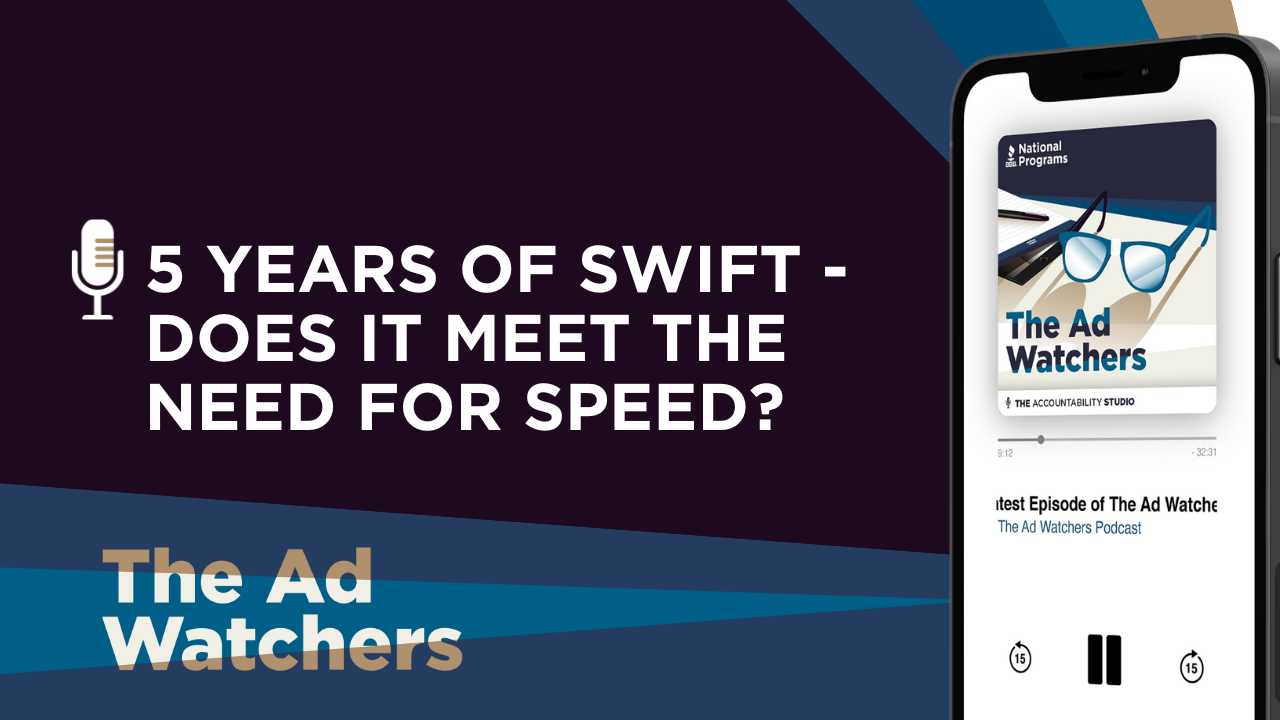Podcast (adwatchers): Play in new window | Download (Duration: 23:21 — 32.2MB) | Embed
Subscribe: Apple Podcasts | RSS
It is common for advertisers to engage in a little healthy competition, directly comparing their products to a competitor’s to inform consumers about the differences between them. But what happens when things get mean? It crosses the line when denigrating claims are false.
The National Advertising Division’s (NAD) mission is to ensure that consumers are getting accurate advertising, to enhance trust in the marketplace. In this final episode of the season, hosts Annie and Eric discuss denigrating claims cases that have come before NAD and how our advertising lawyers break down when a line has been crossed.
Tune in to learn practical lessons for advertisers, lawyers, and marketing teams navigating competitor claims.
Related Resources:
- 2025 NAD Annual Conference – register now!
- Goose Creek Candles “Bath, Body & Home”
- Genexa Kids Pain Medicine
- Molson Coors “Tastes Like Water”
- Welch’s Fruit Snacks
- Vrbo Host-Free Claims
- Tempur-Pedic Flimsy Mattresses
- Dollar Shave Club Parity
- AT&T’s DirectTV
- Blue Buffalo Competing Pet Foods
Chapters
- 00:00 – Intro & NAD Conference Reminder
- 02:00 – Defining Denigrating Advertising
- 03:00 – Goose Creek vs. Bath & Body Works: “Harmful chemicals” claims
- 05:00 – Genexa vs. Johnson & Johnson: Ingredient comparisons gone wrong
- 09:50 – Vrbo vs. Airbnb: “Host-free” campaign and implied disparagement
- 11:00 – Tempur-Pedic vs. Sleep Number: “Air mattress” claims
- 18:00 – Blue Buffalo vs. Mars Petcare: Comparative claims and consumer perception
- 21:30 – Key Takeaways: Humor isn’t a defense, keep it narrow, expect challenges
- 22:10 – Closing & Season Wrap


